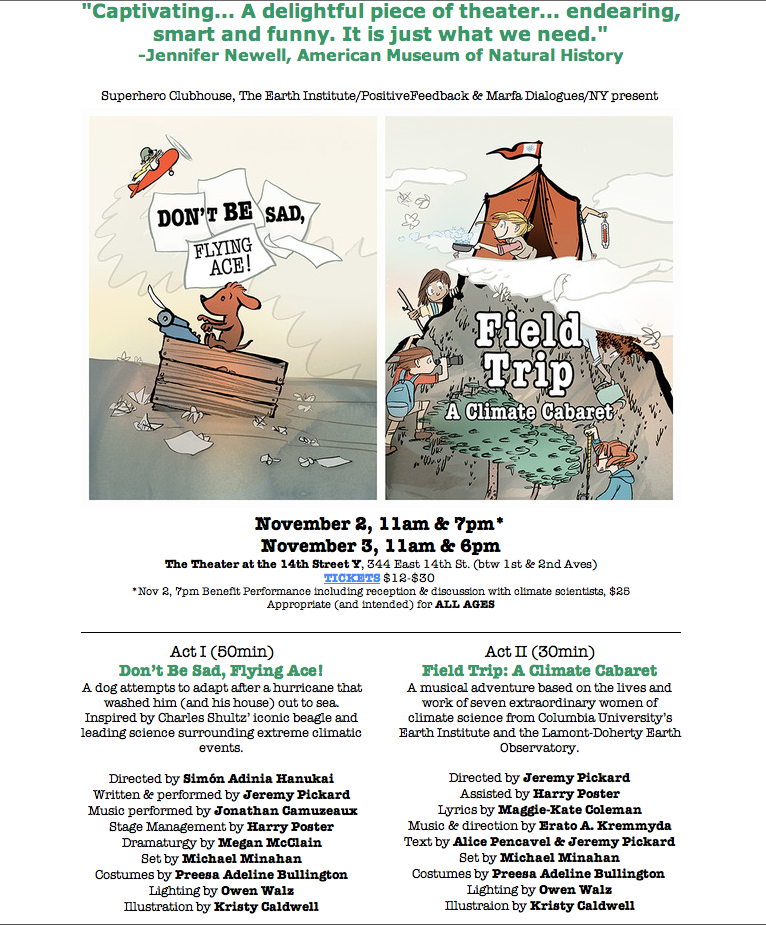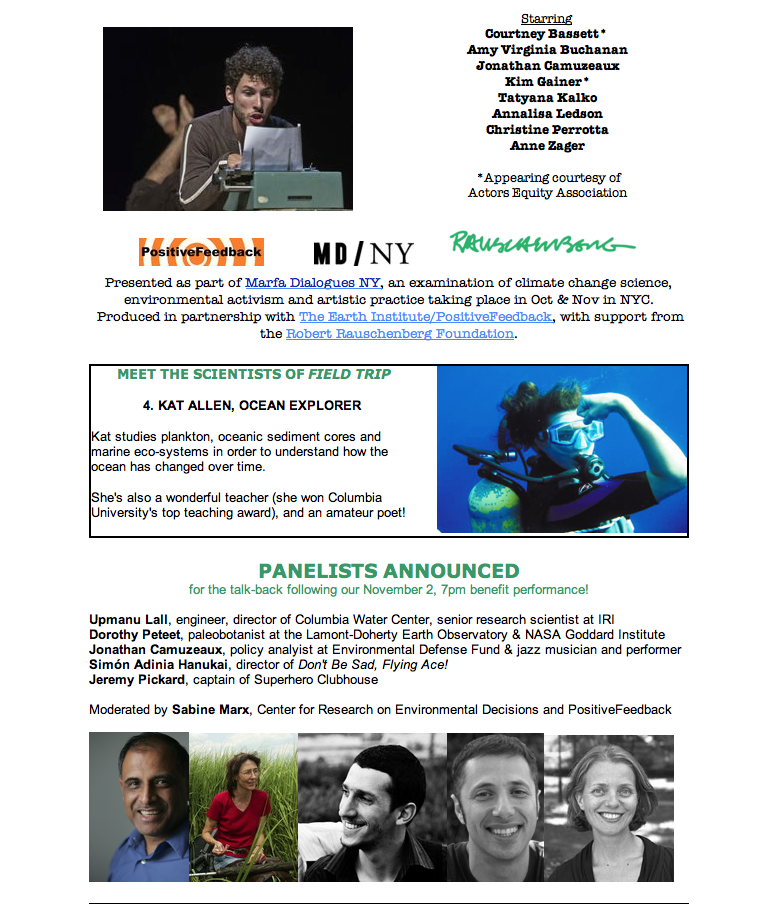In preparation for Superhero Clubhouse’s premiere tomorrow (in partnership with PostiveFeedback and the Earth Institute at Columbia University), be sure to read this post on the Earth Institute’s blog: State of the Planet.
An excerpt:
As research continues to show how drastically Earth’s climate is changing, it is important to find effective ways to communicate these issues. One important and emerging form of communication is to discuss climate change by using art as a catalyst…. (Jeremy) Pickard (the artistic director of Superhero Clubhouse) noted that the public is constantly infiltrated with images and messages from the media, and artists are oftentimes the ones making the media; the public is surrounded by it. “Because art is everywhere, it has the responsibility to take into account how it can help us,” Pickard said. “The best art nudges us forward.”
The ubiquity of art certainly means that it has great potential to influence, and the advantage that theater has over other art forms is that it can be a uniquely personal experience for the audience. Those in the audience are directly involved in the art because they have the opportunity to react to what they have seen. According to Pickard, “When you have an audience in the room, you can engage with them and can talk to them immediately. It is very direct.” And that is exactly what Pickard does. A question and answer session with the performers and scientists that help inform the work often follows Superhero Clubhouse’s performances and allows a discourse to begin right away.
Nicole Davi, a postdoctoral researcher at Lamont-Doherty, agrees with Pickard that art and science are at an important crossroads, and she is a strong proponent for exploring the possibilities that this intersection has. Davi spoke about how scientists are trained to communicate to the world through written publications, which are for the most part very short. Davi explained that usually her goal is “to get as much information across with the least amount of words and with very little room for opinion or emotion.” This can make it challenging for the public to connect with scientists, but this play does a great job of doing just that. The production is a rare peek into how scientists collaborate and work together in the field, and lends a much more personal side to a largely impersonal area of study. Pickard believes that the only solution to climate change is through collaboration, and this story shows how that is possible.
“Don’t Be Sad Flying Ace” and “Field Trip: A Climate Cabaret” will have performances on Nov. 2 and Nov. 3 at the Theater at the 14th Street Y (344 East 14th Street, between 1st and 2nd Aves). There will also be a special benefit performance with a reception and conversation with climate scientists at the evening performance on Nov. 2nd at 7pm.
Tickets may be purchased here.
For additional information about Superhero Clubhouse and their MD/NY event, please visit their profile page and check out their flyer below.

